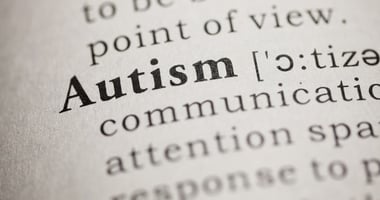Children Diagnosed With Autism Early May Be More Likely to Receive Behavioral Intervention
 |
Katharine Zuckerman, M.D., M.P.H., an assistant professor of pediatrics at Oregon Health and Science University, and colleagues assessed 722 children ages six to 11 diagnosed with ASD, from the Centers for Disease Control’s Survey of Pathways to Diagnosis and Services.
The researchers found that children diagnosed with ASD at four years or older were less likely than children diagnosed at younger ages to receive behavioral intervention (25% versus 44%, respectively) and more likely to receive medications (60% versus 31%, respectively).
A delay in ASD diagnosis—defined as the amount of time between parents’ first discussion of concerns with a provider and ASD diagnosis—also appeared to influence health service use. The use of complementary and alternative medications, such as nutritional supplements, was nearly twice as common among children with longer versus shorter diagnostic delays (21% versus 11%, respectively). As diagnostic delay increased, children with functional limitations became significantly less likely than children without functional limitations to receive school-based therapy, the authors reported.
“Although the optimal type and amount of ASD therapy remain unclear, there is growing consensus that early therapy benefits children and families,” the authors wrote. “It is therefore concerning that nearly a quarter of the elementary school–aged children studied were receiving no school-based therapy, and over half were not receiving BI [behavioral intervention]. Instead, children diagnosed at older ages were more likely to receive psychotropic medications, which generally do not treat core ASD features.”
The authors concluded, “These results suggest that efforts to increase early ASD diagnosis may result in greater ASD-related therapy use and improved functional outcomes for children with ASD.”
To read about efforts to improve early ASD diagnosis, see the Psychiatric News article “Molecular Investigation of Autism May Bring Genetic Diagnosis Closer.”
(Image: iStock/Koca777)





